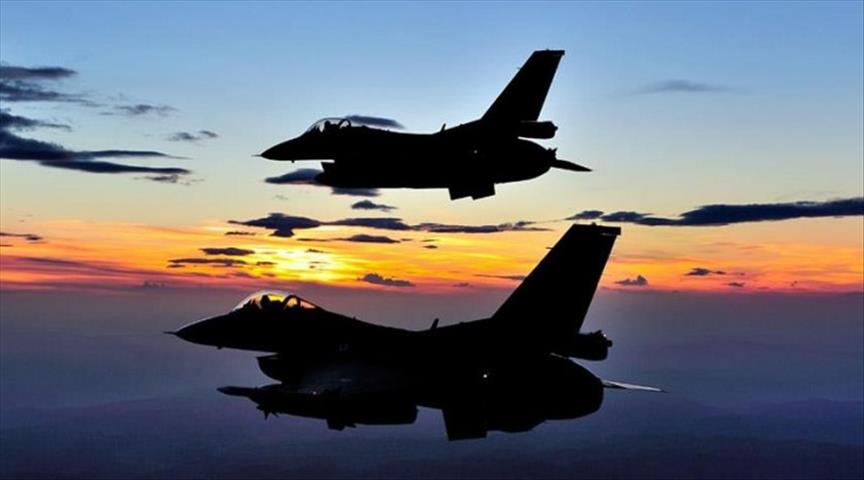Russia, while trying to find new solutions for the economic crisis in the country, has seen its Syria campaign up until March cost up to $700 million while the bill continues to grow due to ongoing clashes, analysts have said.
Russian President Vladimir Putin announced last week that since the start of operations in Syria on Sept. 30, Russian warplanes have made more than 10,000 flights hitting over 30,000 targets.
Additionally, 115 homing missiles have been launched from the sea and heavy bombers have taken off from Russia making 178 flights to Syria.
In early March, after announcing that the majority of Russian forces were being withdrawn from Syria, Putin said the cost of Russia’s military operations in the country cost 33 billion rubles (roughly $464 million).
“The first problem with this number is that Russian forces are still operating in large numbers in Syria so the cost continues to rise,” Ben Moores, a senior analyst at the international defense consultancy IHS, told Anadolu Agency.
Moores asserted that based on IHS calculations, the figures announced by Putin are too low, and indicated that a cost of $700 million was more realistic.
“But it all depends on what you include in your costs,” the expert said.
Lukasz Kulesa, research director at the European Leadership Network, said that the estimates put together by some Russian experts put the average costs at up to $3.3 million per day.
The expert also pointed out that although the Russian air operation in Syria was scaled down after March, Russia had a presence in Syrian and still continued with its combat activities there.
“So the costs keep going up beyond the number cited by Putin,” Kulesa said.
According to various statements and reports, many of the 4,000 ground forces that were deployed to Syria have returned to Russia.
However, it was reported many times by the media that Russia continues to operate the airbase it built last year near Syria’s Latakia province as well as the naval base at Tartus.
“We cannot forget that the operation can bring financial benefits for Russia in terms of additional arms contracts,” Kulesa said.
Russian daily Kommersant newspaper reported in March that thanks to the showcasing of arms in Syria, the Russian military industry could benefit from new arms deals amounting to $7 billion.
Russia has already signed a deal with Algeria last month for 40 Mi-28N helicopters, which Russia used in its Syria campaign.
“Syria has been a big 'show-room' for modern Russian systems and the existing and new clients will order the equipment which they have seen in action, bringing benefits to the Russian budget,” Kulesa added.
When the Syrian operation was launched last October, the Russian government was criticized for spending money on a war that is not directly connected with the country.
The main argument for these criticisms was the ongoing economic crisis the country has been struggling with since the drop in oil prices as well as the imposition of Western sanctions that started two years ago.
The Russian economy contracted 3.7 percent in 2015 while the World Bank 2016's growth projection for Russia was marked at minus 1.2 percent.
“One needs to keep in mind that with the way the Russian military works in Syria, some of the expenses are simply written off,” said Yury Barmin, an expert on Russia’s Middle East policy.
Barmin noted that one of the most expensive aspects of having troops on the ground was renting a base, which Syria provides free of charge.
“It is also unlikely that Russians pay for fuel, water and other staples that are provided by the Assad government,” Barmin said.
The expert also underlined that Russia’s defense producers are closely linked with the Defense Ministry, which would help Russian troops obtain at least some ammunition at no cost. He added that Moscow is not spending any extra budget on this operation because all of it is being covered through expenses for military exercises.
“Whatever the real numbers are, Moscow clearly aimed to achieve its goals in Syria at minimum cost,” Anna Borshchevskaya, an analyst at the Washington Institute said.
By Emre Gurkan Abay in Moscow
Anadolu Agency
gurkan.abay@aa.com.tr


